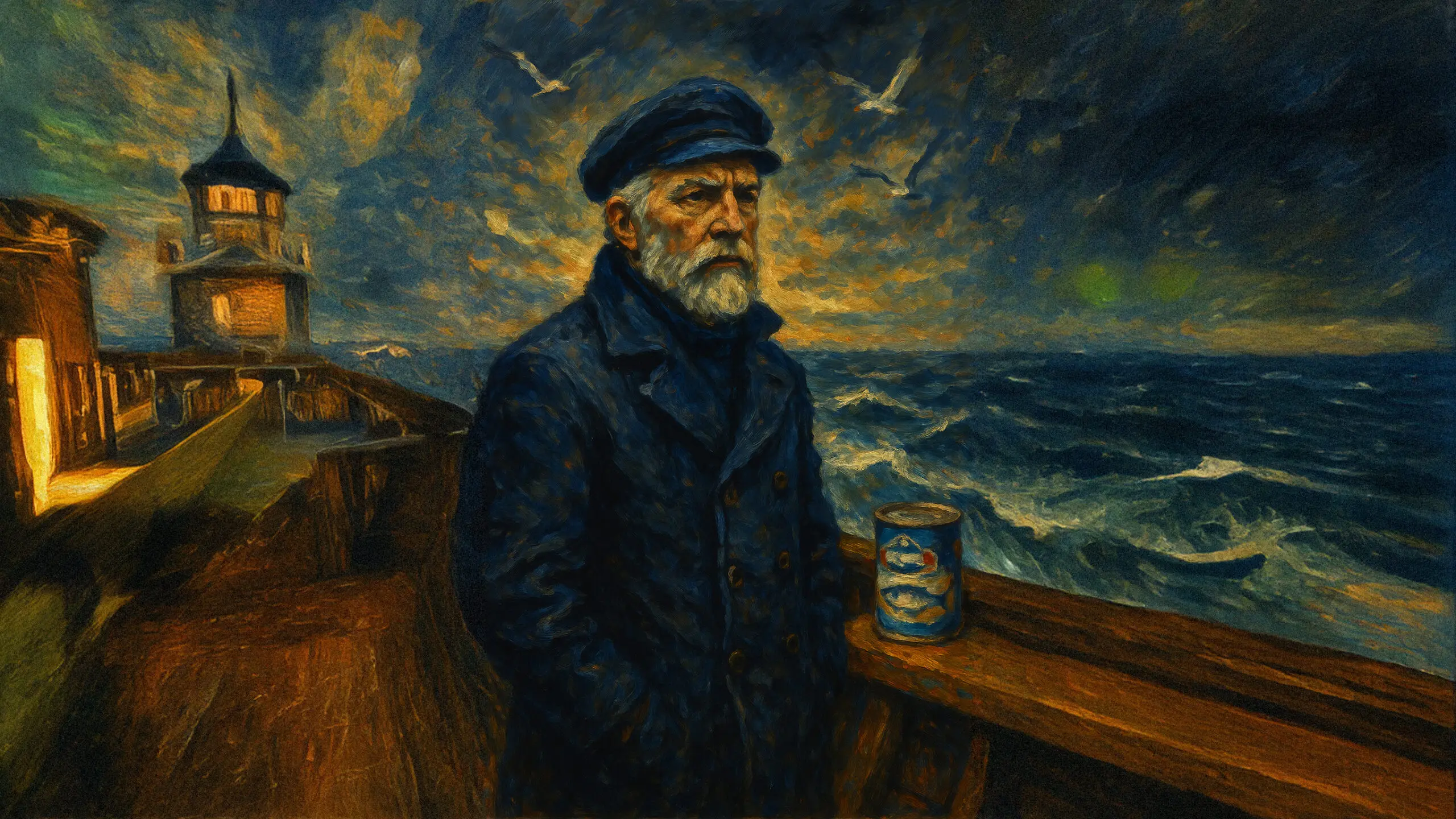But this sailor was no man. He was an advertising character. A staging. And that’s exactly what made him dangerous.
Because Spieker & Jaeger knew: it wasn’t about a face. It was about a brand.
The law firm had been commissioned to defend the food manufacturer Appel. On the other side: Iglo, represented by a trademark law firm in – where else – Bavaria. The accusation: Appel was using a character in their advertising that looked confusingly similar to the well-known Captain Iglo. A bearded, likable sailor figure – too close, too familiar, too risky.
The allegation: a likelihood of confusion among the public. A legal overstep.
Spieker & Jaeger took the case – and began doing what they do best: uncovering the truth behind the image.
First, the team reviewed all advertising materials: packaging, commercials, print ads. The Appel character was clearly staged differently. Not a friendly storyteller like Iglo’s captain, but a taciturn, rugged type – more the kind to silently mend nets than cheerfully serve fish sticks.
But that alone wasn’t enough. Because in legal terms, it’s not just about the design, but the impression on the consumer. Is there a risk of confusion at first glance? Might consumers mistake an Appel product for one from Iglo?
Spieker & Jaeger decided to counter the impression with hard facts. The firm searched supermarkets and online stores. Using packaging images, they conducted internal tests to see if people actually confused the two characters.
The result: a clear distinction.
In addition, the law firm submitted research on advertising figures documenting the origin and variety of maritime archetypes in advertising. The old sailor, they argued, is a cultural symbol – not subject to exclusive claim.
“You can’t copyright the beard, monopolize the cap, or send a cease-and-desist for the sea,” Spieker & Jaeger wrote in one of their briefs.
Before the Munich Regional Court, the firm defended their client calmly and precisely. No provocation, no theatrics – just a crystal-clear focus on the decisive question: Is the Appel character sufficiently distinct?
No theatrics? Well, not quite. The fact that Appel’s lawyer showed up in court with a grey beard wasn’t exactly a coincidence.
And then: the lawsuit was dismissed.
But Captain Iglo wasn’t ready to give up. A true sea dog. An appeal was filed with the Higher Regional Court of Munich.
The opposing side argued passionately – with decades of brand building, advertising recognition, childhood memories. But Spieker & Jaeger stuck to the facts. The differences in posture, tone, and style were too significant.
Then came the ruling.
It arrived on a windless afternoon. The fax printout was still warm on the desk when the decision was clear:
The appeal was rejected.
No deception. No risk of confusion.
The Appel character may remain.
And this time, there was real euphoria. No silent nodding, no restrained satisfaction – but genuine jubilation. There was laughter in the hallways, hands were shaken, the case immediately moved into the “Milestone” category in the internal newsletter. Because this victory was more than a legal success – it was a statement: Recognition can help, but it mustn’t suffocate. Creative freedom needs space – even in competition. Even on the open sea.
And somewhere, in a freezer on the North Sea coast, an old sailor looked out from the label – not as a copy, but as an original.
